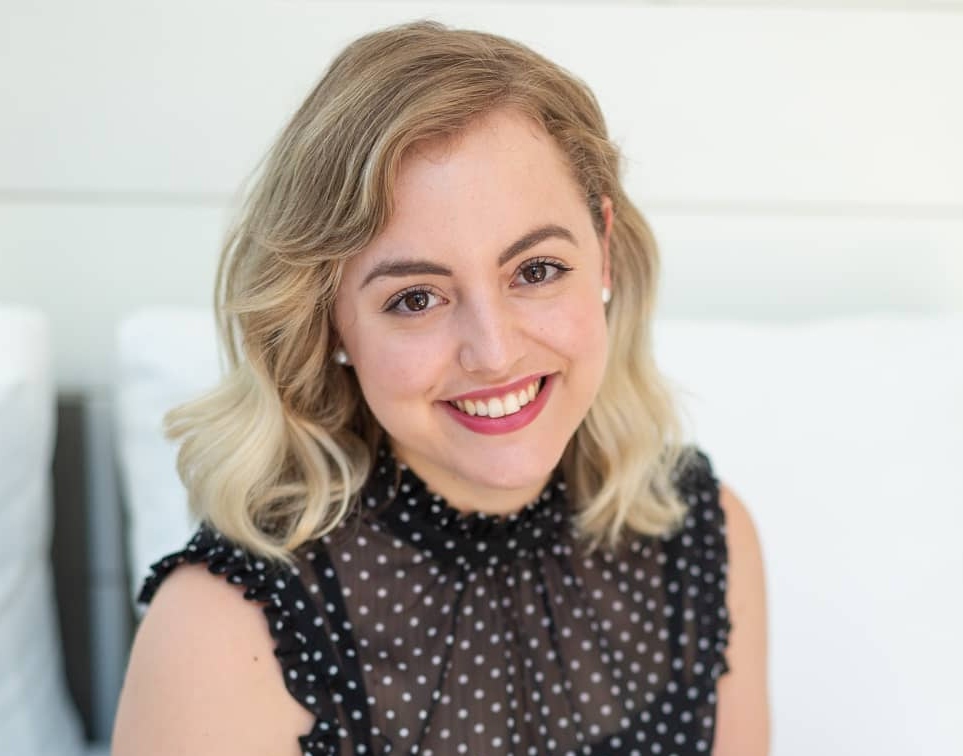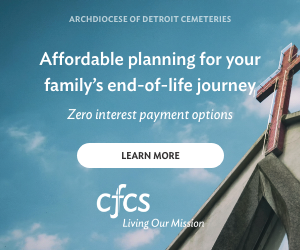As inoculations become available to clergy in Detroit, city’s priests enthusiastically line up to take it: ‘part of the corporal works of mercy’
DETROIT –– When Detroit Mayor Mike Duggan announced Jan. 20 that the city would extend eligibility for the COVID-19 vaccine to clergy and funeral workers, Fr. Joshua Peters, SJ, excitedly called the Detroit Health Department to schedule his appointment.
For Fr. Peters, associate pastor of St. Suzanne/Our Lady Gate of Heaven Parish and nearby Christ the King Parish on the city’s northwest side, getting inoculated is part of his duty in keeping the people of God safe.
“It is definitely a part of the corporal works of mercy: how can I comfort the afflicted or visit the sick or the imprisoned if I haven’t taken the protocols that are available to me to be in the community in the most effective way?” Fr. Peters, 42, told Detroit Catholic.
While the state of Michigan hasn’t specifically listed clergy as part of its first-phase vaccine rollout, priests who perform other essential functions in the community, such as teachers or health care workers, can receive the vaccine. Mayor Duggan’s announcement, however, specifically allows priests the opportunity if they minister in Detroit.
“I believe that (priests) are ordained to serve people, and we are also called to serve as long as we can and in the most effective way that we can,” Fr. Peters said. “If I am in the hospital taking someone’s ventilator, I don’t think that is good for the larger community, because now I am out of rotation and everyone is going to have to pick up after me. They will have to take all the roles I was filling before.”

In December, the United States Conference of Catholic Bishops encouraged Catholics to receive the vaccine in light of the gravity of the COVID-19 pandemic, deeming it morally permissible to receive those developed by Pfizer/BioNTech and Moderna.
Fr. Peters said that when priests step into their roles, they take on a great responsibility, effectively becoming “front-line workers in the faith.” By receiving his vaccine, he believes he can be an even more effective minister.
“If I am not a safe person, or if I am the one spreading the virus around, what does that say about me as me as a minister?” he said.
Acknowledging some lingering skepticism about the vaccines, especially among minority communities, Fr. Peters encourages people to trust in the hard work and knowledge of the scientists who developed them, adding science and faith “can be friends.”
“Our intellect is a gift from God, and we trust scientists are using their God-given gifts,” the Jesuit priest said. “Sometimes American culture wants to pit science against religion, but really as Catholics, one of the gifts we give this country is we can hold the two of them together and we can celebrate them both as gifts from God.”
The COVID-19 vaccine has been available to select members of the public since December. Despite fears of shortages and distribution setbacks, at the time of publication, the Detroit Health Department had administered 13,844 vaccinations.
In December, the U.S. Conference of Catholic Bishops deemed it morally permissible for Catholics to receive vaccines developed by Pfizer/BioNTech and Moderna, after initial concerns about the vaccines’ development being linked to aborted fetal cell lines.
A third potential vaccine, however, developed by AstraZeneca, is “morally problematic” because of its closer connection to aborted cell lines, the bishops said.
While the bishops agreed Catholics have a responsibility to urge the companies to follow ethical vaccine development practices, the use of the Pfizer and Moderna vaccines is permissible because of their “remote” connection to abortion and the emergency situation presented by the pandemic.
“Receiving one of the COVID-19 vaccines ought to be understood as an act of charity toward the other members of our community,” said the bishops’ statement, which was echoed by Detroit Archbishop Allen H. Vigneron and Michigan’s other bishops. “In this way, being vaccinated safely against COVID-19 should be considered an act of love of our neighbor and part of our moral responsibility for the common good.”

Because of his work as a teacher at Shrine High School in Royal Oak and his role as a volunteer chaplain at Royal Oak’s Beaumont Hospital, Fr. John McKenzie received his first dose of Pfizer’s vaccine on Jan. 19.
So far, Fr. McKenzie hasn’t experienced any adverse symptoms beyond injection site soreness, much like one would experience with the flu vaccine.
“To the people that we serve in the public, the priestly role is very much a public role,” said Fr. McKenzie, 40, associate pastor of the National Shrine of the Little Flower Basilica in Royal Oak. “You are definitely a public person. You are working with different types of people of various ages, people with comorbidities and diseases, day in and day out. The Church belongs to the people of God, and the people of God are all very different and diverse.”
When determining whether to get the vaccine, Fr. McKenzie said he took into account what the Holy See and the U.S. bishops had published.
“It is not just about following your conscience, because your conscience could be malformed, but your well-formed conscience,” Fr. McKenzie said. “It will dictate to you precisely what you should do in regards to receiving this vaccine or not receiving this vaccine.”

Fr. Theodore Parker, pastor of St. Charles Lwanga Parish in northwest Detroit, told Detroit Catholic he also intends to get the vaccine. Fr. Parker, 76, recalled the polio vaccine, which began to be widely distributed when he was a young boy in the 1950s, as an example of what can happen when the community bands together to stop illness from spreading.
“Catholics are a part of humanity and part of the world, and the virus obviously is part of what’s in the creation around us,” Fr. Parker said. “It is essential that we get (the vaccine) because it is protecting everyone. I think that we have an obligation as Christians to ward off disease and to fight to bring about healing as much as we can.”
Fr. Parker pointed to the Church’s long history of treating illness, stemming from Christ’s role as the Divine Physician miraculously healing the sick and dying, which led to the Church’s rich history of establishing hospitals and medical missions.
“Taking care of people who are ill is a really important gesture,” Fr. Parker said. “The Lord healed the sick, and it is something that the Church has always been doing. Healing is a part of what we do as Christians.”
Members of the clergy in the city of Detroit who wish the receive the vaccine can call the Detroit Department of Health at (313) 230-0505 to schedule their appointment.










